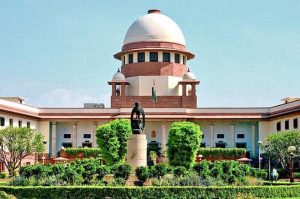 A journalist’s unraveling of the truth is a way of working in the best interests of society and this is for what Tehelka stands for. The Supreme Court’s recent verdict to consider the relevance of Rafale deal documents published in media is as such a big boost to investigative journalism. It was only in December that the Apex Court had dismissed a petition that alleged ‘commercial favouritism’ in the 59,000-crore Rafale deal sealed in 2016 with France for buying 36 fighter jets. The unanimous judgment by the three-member bench, led by chief justice Ranjan Gogoi, is a welcome verdict.
A journalist’s unraveling of the truth is a way of working in the best interests of society and this is for what Tehelka stands for. The Supreme Court’s recent verdict to consider the relevance of Rafale deal documents published in media is as such a big boost to investigative journalism. It was only in December that the Apex Court had dismissed a petition that alleged ‘commercial favouritism’ in the 59,000-crore Rafale deal sealed in 2016 with France for buying 36 fighter jets. The unanimous judgment by the three-member bench, led by chief justice Ranjan Gogoi, is a welcome verdict.
The Supreme Court has overruled the objections that it should not take cognisance of ‘stolen’ documents. The Ministry of Defence too objected to the review petition saying that it would amount to putting classified information in the public domain. The Court has observed that the test of admissibility of evidence lay in its relevance. The Court observed that there was no provision in the Official Secrets Act under which executive could ‘restrain’ publication of papers marked as “secret”. The objections over the admissibility of some documents, earlier alleged to have been “stolen” and then found to be “photocopied in an unauthorized” manner, have been overruled.
There were claims of privilege under the Evidence Act and threat of invoking Officials Secret Act, but the Court relied on the principle that how a piece of evidence is obtained is immaterial, as long as it is relevant to adjudicating an issue. The decision on the admissibility of the documents points to the rights of a free press and underscores the significance of public interest. The judgment also makes it clear that the Official Secrets Act cannot be invoked to escape legal scrutiny on matters involving public interest.
The onus of leaks, would be on the one who leaked the documents and not on the media houses that choose to publish these. It is not important how the documents were procured but merits of the documents. Raising the bogey of national interest to stall judicial scrutiny will never work. Earlier in a landmark verdict, the Supreme Court had sometime back upheld freedom of speech on internet and struck down draconian law — Section 66A of Information Technology Act, which police has used indiscriminately to arrest persons who criticize government and political leaders and earn their wrath. The Court found the law to be ambiguously worded, prone to misuse and, therefore, stretched far beyond the “reasonable restrictions” criterion laid down under Article 19( 2) of the Constitution”. In view of the Supreme Court judgment, the government should welcome scrutiny as the final judgment on the merits of the Rafale deal is still to come.












